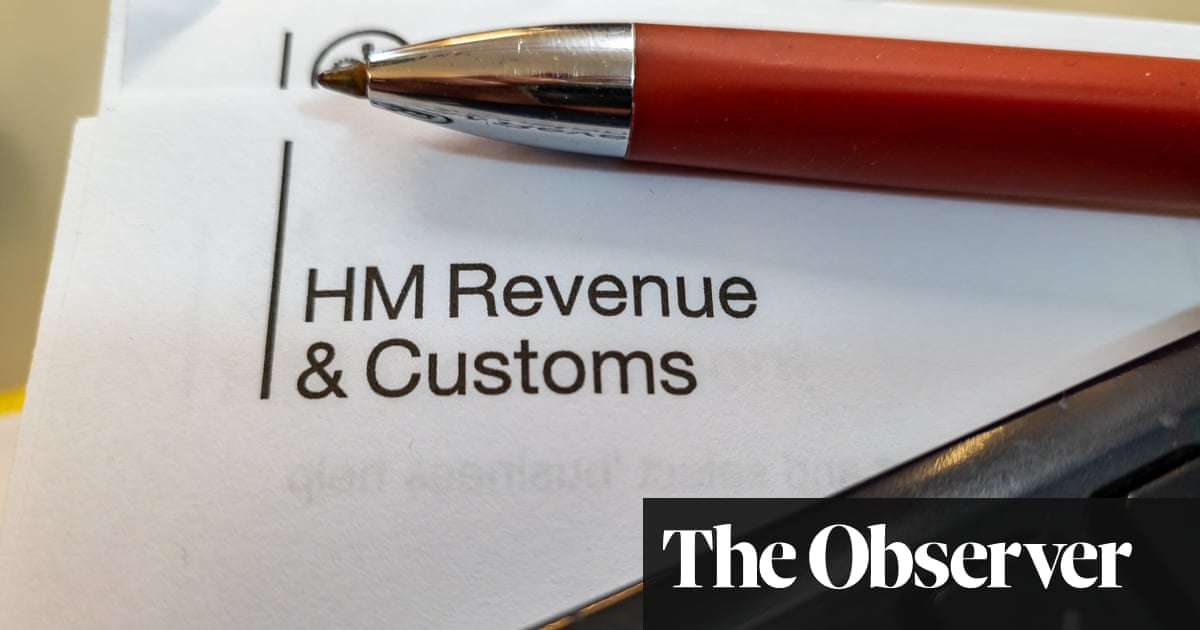Photo credit: www.theguardian.com
Significant Decline in Prosecutions of Tax Evasion Enablers Amidst Calls for Action
Recent data reveals that prosecutions against individuals who assist in tax evasion have experienced a drastic decline of at least 75% over the past five years, with fewer than five criminal cases initiated in the 2023-2024 period. This downward trend raises concerns regarding enforcement efforts led by HM Revenue and Customs (HMRC) as it aims to recover lost revenue for the Treasury.
The strategy to combat tax evasion includes targeting enablers—those who knowingly assist clients in sidestepping their tax obligations. The Labour Party is actively pursuing significant measures to bolster public finances by reducing tax avoidance and evasion practices.
Data acquired by the Bureau of Investigative Journalism indicates a dramatic drop in enabler prosecutions, falling from 16 in the 2018-2019 fiscal year. Initial figures from the Treasury claimed there were 29 prosecutions that year, but HMRC officials have since acknowledged that this number was inaccurately reported.
In a response to a freedom of information request, HMRC refrained from disclosing precise numbers of prosecutions and convictions related to tax evasion enablers in 2023-2024, citing concerns over the potential identification of individuals involved. This lack of transparency has drawn criticism from various quarters.
Labour peer Prem Sikka expressed concerns over the inadequacies of freedom of information practices, stating, “This makes a mockery of [freedom of information] laws. Parliament can’t properly question HMRC because it hides behind a veil of confidentiality while ministers just shrug their shoulders and carry on.” He further described the discrepancy regarding the previous year’s figure as “contempt of parliament,” emphasizing the unreliability of HMRC data.
Claire Aston, director of the thinktank TaxWatch, criticized the “precipitous decline” in prosecutions, asserting that HMRC does not seem to be effectively addressing those profiting from tax-related crimes. She asserted that withholding details of prosecutions and convictions was a significant misrepresentation of confidentiality.
HMRC defines enablers as a broad category of professionals, such as tax planners and wealth advisers. The peak of HMRC’s enforcement in this area was noted in 2018-2019 with 16 prosecutions, but figures have sharply declined since then, contributing to a broader downturn in HMRC enforcement efforts due to obstacles presented by Brexit and the COVID-19 pandemic.
Reports, including one from the Observer, highlighted that overall prosecutions stemming from HMRC investigations have dropped by more than two-thirds in five years, with no companies charged since the introduction of new enforcement powers in 2017. This trend has profound implications, particularly as Labour’s current government calls for stricter action against tax avoidance and evasion to fund its extensive spending initiatives.
The tax gap—the difference between collected tax revenues and the amount HMRC estimates it should collect—was reported at nearly £40 billion for the 2022-2023 year. Labour’s recent budget proposals aim to generate £6.5 billion through intensified efforts against tax avoidance, with an additional £1 billion targeted in the latest spring statement.
Dan Neidle of the Tax Policy Associates thinktank pointed to the pressing need for visible prosecutions in order to curb the growing industry of tax evasion facilitators. “A handful of prosecutions won’t change anything,” he remarked, underscoring the importance of upholding public confidence in the tax system.
In response to the accusations regarding inaccuracies, an HMRC spokesperson stated, “The numbers provided to parliament in 2023 on the prosecution of tax fraud enablers were not accurate, and we apologize for that. Tackling enablers of tax fraud remains a top priority for us, and we currently have more than 150 enablers under criminal investigation.”
Officials have asserted that the results of freedom of information requests can be contested, suggesting that transparency in HMRC’s processes remains a contentious issue.
Source
www.theguardian.com

